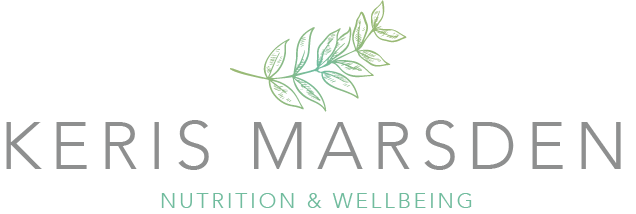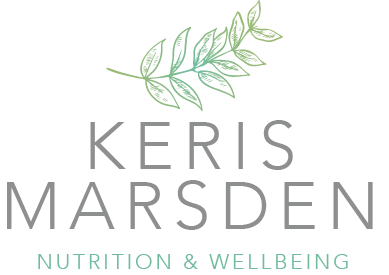HRT and me
If you’ve followed me via Fitter Food on social media for a while you may know I’ve had a tricky journey with HRT.
I was told to start HRT at 38.
Early menopause runs in my family and I have a history of amenorrhea (no menstrual cycle).
I opted to use herbal medicine and managed to kick start my cycle but then fell ill with gastritis later in the year, lost a lot of weight and my cycle stopped again.
During lockdown I became aware of the emerging research regarding an association between lower reproductive hormones and more severe Covid infections or risk of long Covid.
The link being the role of hormones in immune function.
Previously I’d been handed a standard dose of HRT by a rather abrupt endocrinologist.
He suggested I take a combined tablet orally.
There was no degree of personalisation whatsoever and when I asked questions about my family history of breast cancer and my digestive issues he dismissed them all and pretty much told me to just get on with it.
I knew I could get better advice and began to research my options in terms of application (oral, transdermal and vaginal) and doses. I kept an eye on my levels using Medichecks hormone tests and started reading up.
It became clear following the work of the Newson Clinic that no one size fits all and I’d benefit from working with a specialist menopause practitioner.
I found a specialist who swapped me to estrogen gel and utrogestan, both body identical forms of HRT.
I took the progesterone vaginally as I was still working through gastric issues and wanted to bypass my digestive system and liver.
My first progesterone withdrawal was rough and so I was encouraged to get my oestrogen levels higher and supplement for a month before adding in the progesterone.
This improved my progesterone tolerance but unlike most women who love the progesterone fortnight I struggled with lethargy, low mood and hot sweats.
These balanced eventually and my practitioner added in testosterone, I should add I continued to test my hormones annually via Medichecks and testosterone has been low for the last couple of years.
This combination came to work although I would never looked forward to my stint on progesterone and discussed this with my specialist.
I also noted how the HRT seemed to exacerbate my histamine issues increasing night sweats, digestive issues and bloating.
The links between hormones and histamine are now very clear in the research.
So I steered my diet towards lower histamine foods and added in targeted supplements including vitamin A, black seed oil, quercetin and DAO enzymes.
I also drank fresh ginger tea and chamomile tea.
The worst bit was giving up my beloved chocolate, peanut butter, black tea and trying to eat mainly fresh or cooked from frozen foods as histamine increases the longer food is left so leftovers can be a trigger 😭
I didn’t have much chance to see if this would help as Covid struck shortly after having my vaccines, so you could argue I got a triple hit.
I had a rough ride with Covid and it knocked my digestive system for six.
At this point I started to feel terrible on my HRT and showed signs of a hormone excess as I developed greasy skin, acne, mood swings, bloating and constipation.
I decided to stop everything and work on rebalancing my body.
I used melatonin for sleep support (under guidance) and did everything necessary to support my health with a nutrient dense diet.
I focused on increasing intake of bone nutrients like calcium, phosphorus, vitamin D, vitamin K2 and magnesium, supplementing where necessary.
I strength trained regularly, took omega 3s, ate a high protein diet and supplemented with bovine collagen to support my joints as I’m vulnerable to tendonitis and this is worsened when my joints get dry (a symptom of low estrogen).
I also took vaginal estrogen pessaries in the interim period.
As my Covid issues lingered I bit the bullet and ended up taking time off work and heading to Portugal to get a good dose of sun, sea, sand and sleep.
Working on my gut health, focusing on stress management and doing regular breathe work have been helpful and I’m looking to reintroduce my HRT.
I’m sharing this experience because a few things have become apparent to me in this process and I think it’s helpful to share if you’re taking or considering HRT.
My HRT Takeaways
HRT is ideally personalised, many factors influence how you respond and what dose and delivery form works for you. Having professional guidance from an experienced menopause practitioner is incredibly valuable.
Don’t get too distracted with testing, I know many people spend a fortune on DUTCH hormone tests and other tests relatively new to the scene of hormone testing. Whilst there may be some validity in the results I’m not sure it compares to working with highly qualified and experienced menopause practitioner. They will conduct a thorough assessment of your health history, symptoms and monitor your response to the therapy. This process is expensive so if I had to suggest investing in something, it would be this.
You can’t out HRT poor nutrition and lifestyle choices. HRT is not a wonder intervention and you’re unlikely to experience the full benefit if you haven’t dialled in your nutrition, exercise and put some steps in place to look after your sleep and mindset.
Self-care becomes non-negotiable as we age and especially during menopause. To truly get the benefit of HRT you need to start putting you and your health first.
If HRT is not an option for you there are plenty of alternatives. The lifestyle aspects become more vital (especially strength training and a nutrient dense diet) and you could consider working with a Medical Herbalist to obtain personalised herbal support. Working with a qualified medical herbalist is completely different to buying herbal products on the high street as the form and dose is greater and highly regulated for safety.
If you would like some support on your menopause journey or advice about how to prepare, book a free 15 minute call and we can chat about your options.


